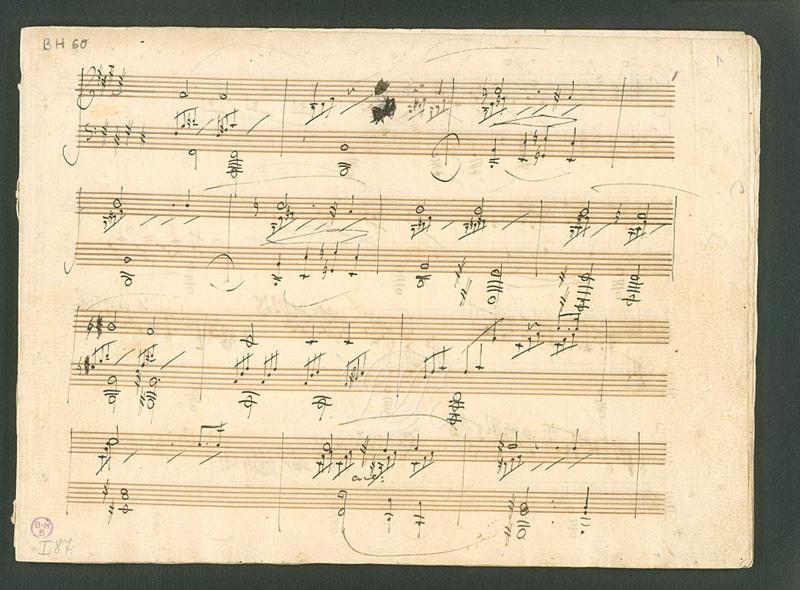Over the next few months, two of my pursuits are converging: the history of higher education and classical piano and pianists. Now retired, I am playing the piano again and seriously following pianists I enjoy; I am also playing at being a gentleman scholar who is researching the history of higher education. That research is partly in response to a question posed to me the other day--namely, how did higher education get where it is today? If I am fortunate, I will share my research with students in a higher education leadership program. Having been associated with art and design education, where one cannot achieve the degree (or, as some people think, the license ) to be an artist without a knowledge of the history of art and design, one can happily roam anywhere in higher education as faculty, staff, administration, or student without knowing anything about from whence it came.
The return to the piano happily coincides with the Gilmore Keyboard Festival, which recently announced this year's Gilmore Artist: Rafal Blechacz, as well as its series of pianists who will be appearing between April 24 and May 10. Interestingly, the Gilmore has just announced two additional artists who will be appearing as part of the Festival--John Legend and Ben Folds, both of whom are likely (from what I can tell) to draw larger audiences than Blechacz.
Part of the Manuscript of Beethoven's Opus 27, no. 2--popularly known as "The Moonlight Sonata"
The two two roads of higher education history and the world of pianists converge because of a MOOC--Jonathan Biss's course on Beethoven's Sonatas, which Coursera will offer again beginning on March 13, 2014. I have signed up for this course again. I thoroughly enjoyed Biss's lectures and his playing. But, as I noted in my last post, this MOOC raises for me some questions as to what innovative role, if any, MOOCs have in higher education, especially when it comes to the question of credit being earned through MOOCs. And last time, I did not seek the dangled prize for really participating in the course: a Statement of Accomplishment. Although Biss's MOOC does not carry college credit, it does offer the possibility of earning a Statement of Accomplishment--and this time I am going to pursue that Statement of Accomplishment.
The Manuscript of Beethoven's Sonata Opus 101
F. Scott Fitzgerald once said that he never got over believing that a person could learn to play the piano in five easy lessons. On their surface, MOOCs promise five easy lessons to what is anything but easy: a knowledge of more than the surface of a subject. MOOCs often assert that the student needs no prerequisites. The blurb for the Beethoven course, for example, promises that "it is not necessary to have studied an instrument . . . or to have any knowledge of music theory" (https://www.coursera.org/course/beethovensonatas). I have indicated in my last post that I am not certain what the term mediant is supposed to mean to someone who has not studied music theory, specifically tonality.
Biss's comments on his MOOC on Beethoven do include some "fine print," specifically the suggestions that although one needs no background to understand what is going on in this course, a student might want to look at Alexander Thayer's biography of Beethoven, Lewis Lockwood's Beethoven: The Music and the Life, Beethoven's letters, and Charles Rosen's two books: The Classical Style and Sonata Forms. Of Rosen's books, which I love very much, Biss notes that "those without musical background will find them very thorny." Well, that seems true enough, if for no other reason than that Rosen's books assume one can read music--at least the treble and bass clefs. And Biss himself has written a lovely book on Beethoven--Beethoven's Shadow, which is well worth reading for many reasons in addition to helping prepare one's self for this course.
The Sonata Opus 101, ready to be played or studied
Artur Schnabel
Beyond the books, Biss does recommend listening to the Beethoven Sonatas--and specifically, recommends the complete recordings by two pianists: Artur Schnabel (who taught Leon Fleischer, who himself taught Biss) and Richard Goode. I happen to have both and to have listened to both many times, as well as having listened to Wilhelm Kempff's recording of the complete Sonatas.
A student who is coming cold to Beethoven, but who does read the books and listens to at least one of the sonatas--even "The Moonlight"--brings a very different background to this course than does a student for whom the name Beethoven means nothing. For me, hearing Biss speak about Beethoven from the perspective of a performer makes this course worth every moment spent in his (and Beethoven's) company, even without the Statement of Achievement that I plan to gain and to frame at the end. But the haziness as to what knowledge, if any, students are assumed to have at the start of such a course still troubles my optimism when it comes to the idea that MOOCs will somehow transform higher education.
Beethoven--who else?






